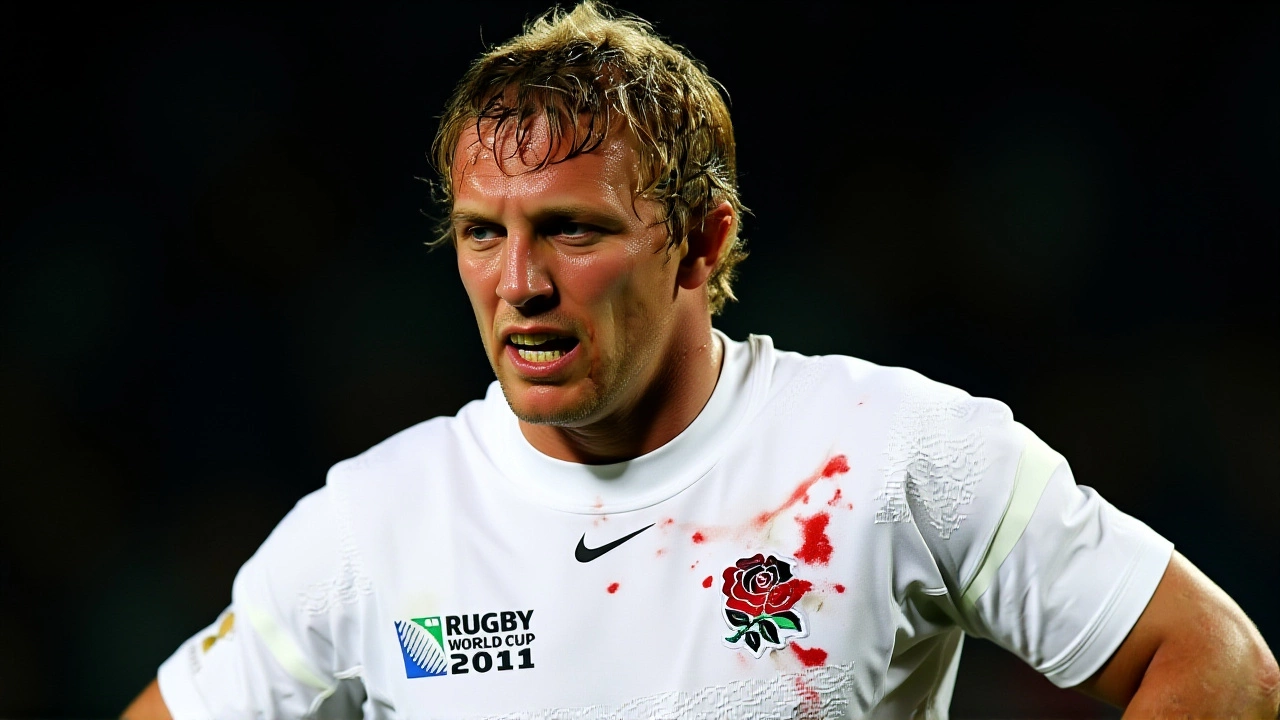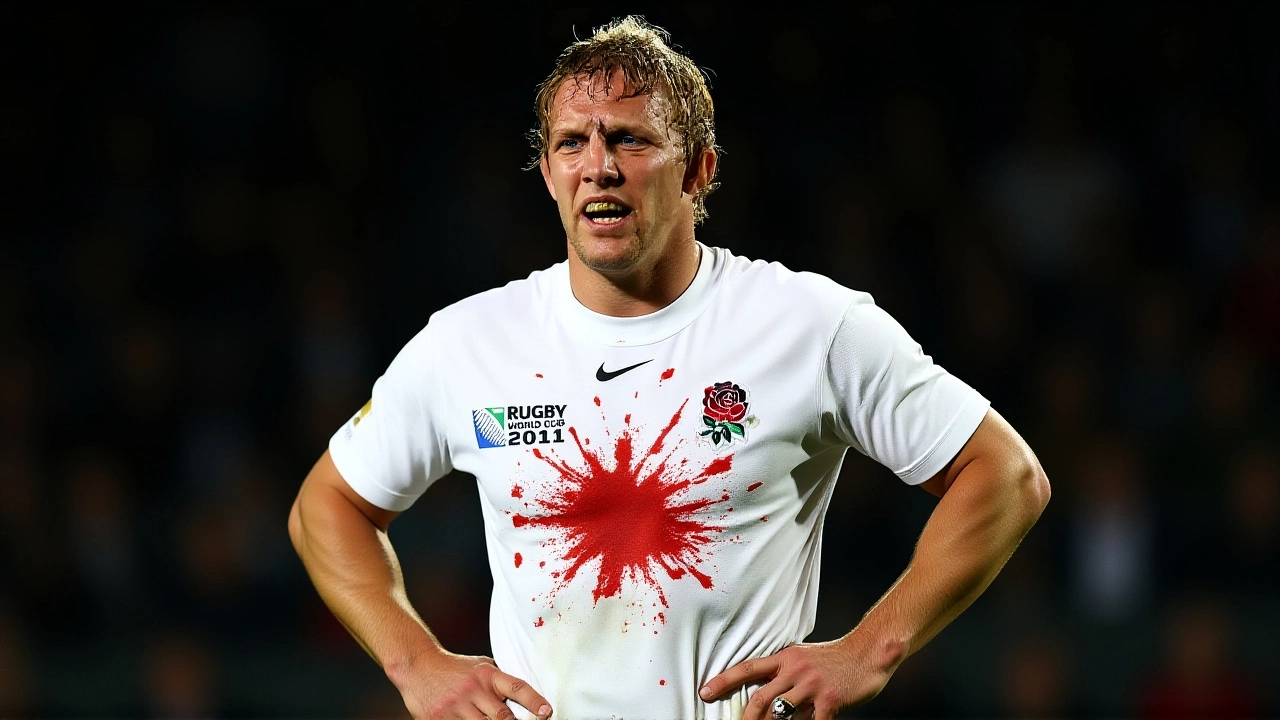When Lewis Moody, former England rugby captain and Leicester Tigers flanker, posted a stark message on X, fans across the globe felt a collective gasp.
Moody, 47, disclosed that doctors have confirmed he is living with motor neurone disease (MND), also known as ALS. The tweet read, "I am sharing some tough news. I have recently been diagnosed with ALS, also known as Motor Neurone Disease (MND). This has been incredibly hard to process and a huge shock to me and my family." The announcement landed on 2 October 2025, a day after the former captain had been quietly undergoing tests.
Background: Moody's Rugby Legacy
Moody's career reads like a highlight reel for English rugby. He burst onto the scene with Leicester Tigers in the late 1990s, earning a reputation for bone‑crunching tackles and relentless work‑rate. In 2003, he was an integral part of the squad that lifted the Rugby World CupAustralia, a triumph that still sparks pride among English supporters.
As captain from 2010 to 2014, Moody guided England through a turbulent period, ending his international tenure with 61 caps. His leadership style—gruff on the field, compassionate off it—earned him the nickname "Muddy" and a place on the sport’s collective memory.
The Diagnosis Announcement
In a brief video clip accompanying his X post, Moody's voice trembled just enough to betray the gravity of his words. "It came as a fairly sizable shock to all of us," he told the BBC later that week. He added that the diagnosis had been lingering in the background for months, a silent worry that finally bubbled to the surface.
Family members, former teammates, and even rival players flooded social media with messages of support. Former All‑Black lock Richie McCaw wrote, "Your courage on the pitch is mirrored now by your fight off it. Stay strong, mate." The outpouring highlights how deeply woven Moody's legacy is into rugby’s fabric.
MND in Rugby: A Growing Concern
Moody's revelation is not an isolated case. Former Wales scrum‑half Dodie Weir died from MND in 2023, and Leeds Rhinos legend Rob Burrow passed away in 2022 after a prolonged battle with the disease. Their stories have sparked a renewed dialogue about potential links between collision sports and neurodegenerative conditions.
Researchers caution against jumping to conclusions. Dr. Helen Shaw, a neurologist at the University of Manchester, told the BBC, "We see a higher prevalence of MND among former athletes, but causation hasn't been proven. Repeated head trauma could be a factor, yet genetics and environmental exposures also play roles." The scientific community remains split, underscoring the need for robust, longitudinal studies.
Medical Perspective on Motor Neurone Disease
Motor neurone disease remains one of the most perplexing neurological disorders. It attacks the motor neurons that control voluntary muscles, leading to progressive weakness, speech difficulties, and ultimately respiratory failure. The average survival time after diagnosis hovers around three to five years, though some patients defy the odds.
"We don't really understand the disease as well as we should," admitted Dr. Shaw, noting that research funding has risen only modestly despite the disease's devastating impact. She emphasized that breakthroughs in MND could ripple into treatments for ALS, Parkinson's, and even certain forms of dementia.

Reactions from the Rugby Community
The Rugby Football Union (RFU) issued a statement expressing solidarity, pledging to "continue supporting research into player welfare and neuro‑health." The union also hinted at reviewing concussion protocols, a topic that has simmered since the 2015 World Cup when several high‑profile injuries prompted a rule overhaul.
Club-level responses have been equally heartfelt. Leicester Tigers' chief executive, Simon Cohen, posted, "Lewis gave his all for the club; now we stand behind him. Our thoughts are with his family as they navigate this difficult journey." Fans organized a virtual watch‑party of Moody's classic highlight reel, turning a moment of sorrow into a celebration of his contributions.
What Lies Ahead: Research and Support
Moody has announced plans to become an ambassador for MND charities, vowing to raise awareness and funds. He will join forces with the Motor Neurone Disease Association (MNDA) for a series of fundraising matches later this year, echoing similar efforts by Burrow and Weir.
On the research front, the UK government allocated £20 million in 2024 to the National Institute for Health Research (NIHR) for neuro‑degenerative disease studies, a budget that could accelerate gene‑therapy trials. Experts hope that public figures like Moody will keep the conversation alive, spurring both public and private investment.
For now, Moody and his family are focusing on treatment options and quality of life. "There's no cure, but there are therapies that can improve day‑to‑day function," he told the BBC. His candidness offers a rare glimpse into the reality of living with MND, reminding fans that even legends face ordinary battles.
Frequently Asked Questions
How is Lewis Moody coping with his diagnosis?
Moody says the shock has given way to a determined focus on treatment and advocacy. He is working with neurologists to manage symptoms and has pledged to raise awareness for MND, joining fundraising events later in 2025.
What does research say about a link between rugby and MND?
Studies show a higher incidence of MND among former contact‑sport athletes, but scientists stress correlation isn’t causation. Ongoing research focuses on repeated head impacts, genetics, and environmental factors to pinpoint any direct connection.
What support is available for players diagnosed with MND?
The Motor Neurone Disease Association offers counseling, equipment grants, and access to specialist clinics. Many clubs now provide tailored welfare packages, and the RFU has pledged additional funding for medical research and player support programs.
Will Moody’s diagnosis affect upcoming rugby events?
There’s no direct impact on scheduled matches, but his involvement in charity games may alter some fixtures. Organizers are using his platform to highlight MND awareness, turning sport nights into fundraising opportunities.
How can fans contribute to MND research?
Fans can donate to the MNDA, participate in sponsored runs, or buy limited‑edition merchandise linked to fundraising campaigns. Social media challenges—like sharing the #MuddyMND tag—also amplify visibility and drive small‑scale contributions.
